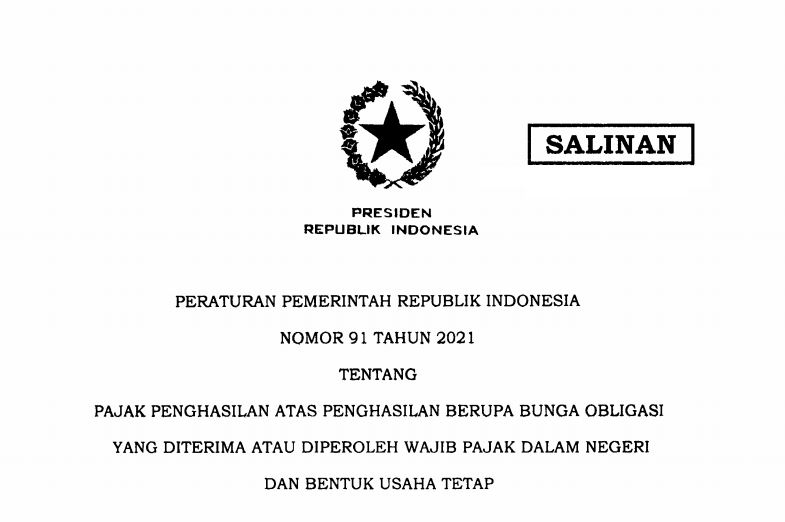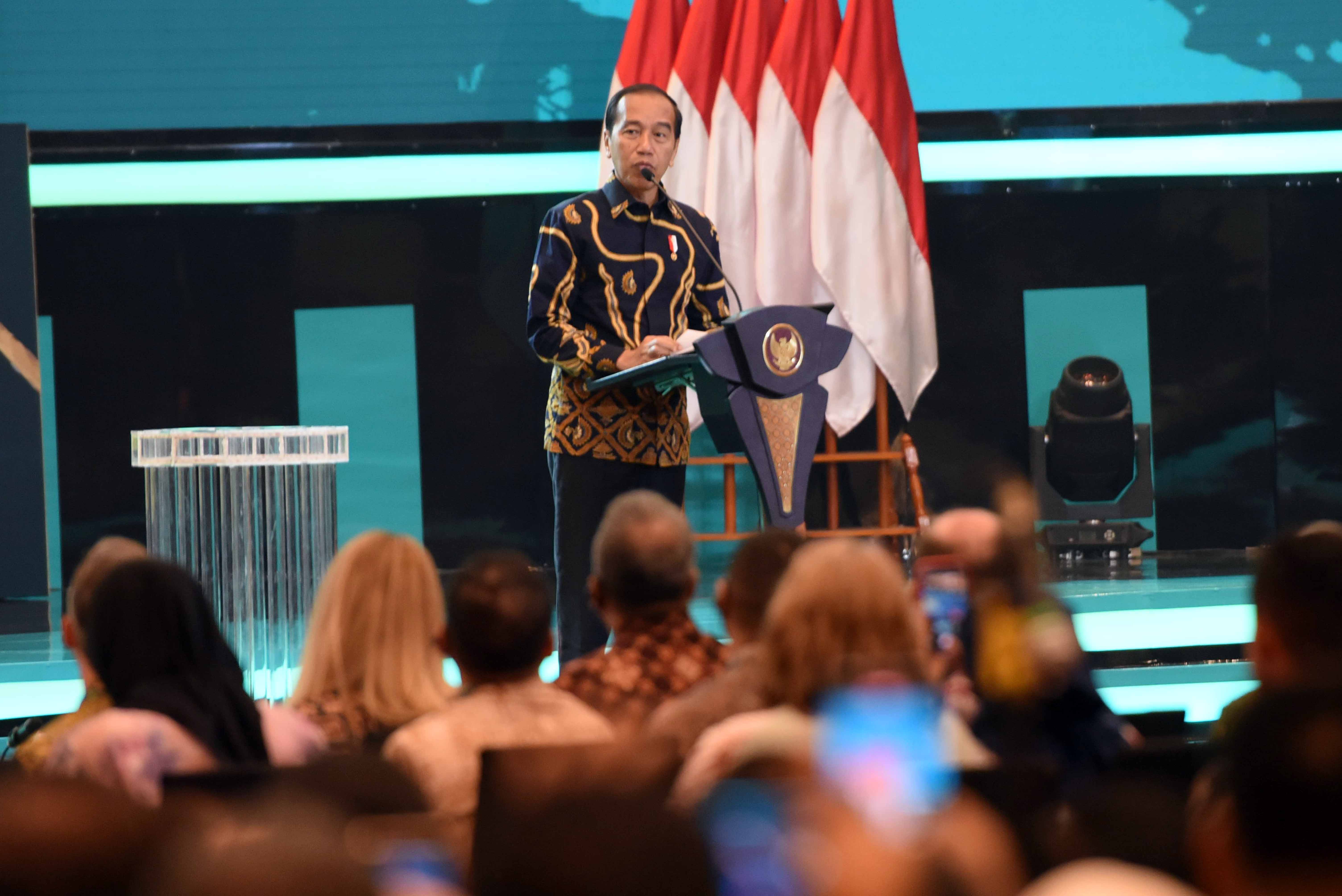Gov’t Decreases Income Tax for Domestic Investors

The Government has decreased the income tax on obligation interest for domestic investors (domestic taxpayers), regulated in Article 4 paragraph (2) of Income Tax Law, from 15 percent to 10 percent.
This policy is stipulated in Government Regulation Number 91 of 2021 on Income Tax on Obligation Interest Received by Domestic Taxpayers and Permanent Establishments, signed by President Joko “Jokowi” Widodo on 30 August 2021.
The issuance of this Government Regulation is in line with the Government’s commitment to push for ease of doing business reforms, create income tax equality between obligation investors, and push for development and intensification of obligation market through a tax policy.
“The issuance of this Government Regulation is a proof that the Government continues to implement structural reforms in order to increase investment and productivity. One of which is carried out through the Job Creation Law. Previously, the Government has also given tax relief for foreign investors,” Head of Fiscal Policy Agency of Ministry of Finance Febrio Kacaribu said, quoted from the official website of Ministry of Finance, Monday (06/09).
Tax relief for domestic taxpayers is expected to increase the role of retail domestic investors. As of 31 August 2021, the composition of retail domestic investors (individuals) of state securities remained small, namely 4.5 percent, compared to banks 33.4 percent, insurance and pension funds 14.5 percent, and foreign investors 22.4 percent.
Large investment is needed to finance development. Based on the 2020-2024 national medium-term development plan, financing of investment needs is carried out through the intensification of financial sector, including banks and nonbanks, namely by increasing financial inclusivity, expanding financial product innovations, developing financial sector infrastructure, and optimizing financial alternatives.
“The increase in participation of both domestic and foreign investors in the obligation market in turn will deepen the financial market. Therefore, the business world’s access to financing from financial sector is more open and there are more non-state budget financing alternatives for development,” Febrio remarked. (PR of Ministry of Finance/UN) (DH/MMB)







